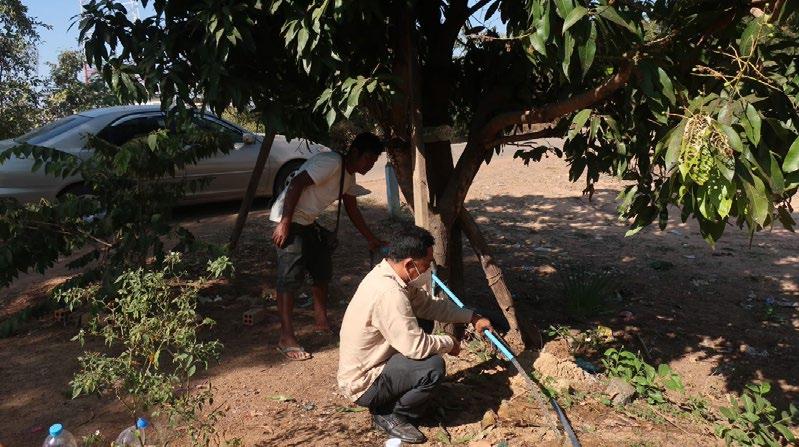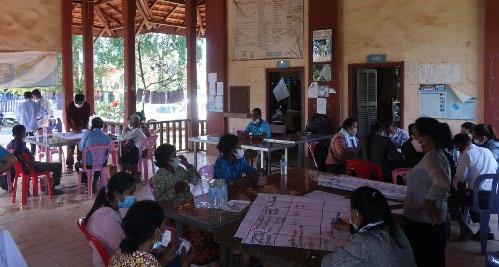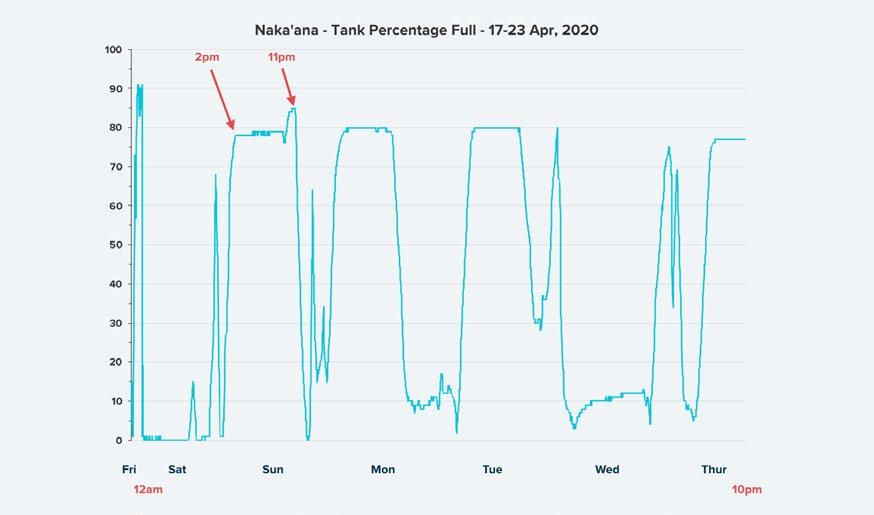
3 minute read
WaterAid’s Global Climate Change Response
Climate resilient WASH: Integrated water management experiences across South East Asia
Climate change is leading to severe water security threats in developing countries including droughts, floods and extreme weather events. The communities affected by these events often rely on a single water source, making them especially vulnerable to food insecurity, health problems and conflicts for water.
Advertisement
WaterAid has been working in Cambodia, Timor-Leste and Papua New Guinea (PNG) to incorporate integrated water management approaches that focus on optimising and diversifying water sources, addressing water and climate data gaps, increasing community awareness, and supporting local governments to develop water security plans that are adaptive and resilient to climate change.
Our key areas of focus include: a. Capacity building and technical awareness among communities and governments around climate change and WASH security; b.Multi-sectoral collaboration to ensure holistic water resource management outcomes; c. Catchment-wide water and climate data management and monitoring processes
These initiatives when strengthened at a local level, have great potential to influence national policy agendas and advocate for rights to WASH among broader climate resilience and water resource management planning.
Women’s and men’s groups creating impact diagrams
WaterAid/ Korn Kun
Capacity building and awareness among communities
Holistic WASH and water resource management planning requires capacity building at the community level, including increasing community input in decision making. Marginalised groups such as women, people with disabilities, and elderly people face a significantly higher amount of difficulty to access clean water and sanitation with limited opportunities to participate in community level decision making processes.
This year, WaterAid completed a community engagement research project in partnership with the Institute for Sustainable Futures on best practice methods to engage with communities around climate change concepts. This project involved the development of guidelines on how to engage with communities and build awareness around climate change, and on demonstrating the importance of gender and social inclusion in this engagement. The activities developed through this project are designed to be tailored to each community context and incorporated across different stages of a project cycle. They are now being widely applied in other projects across Cambodia, Timor-Leste and PNG.

One of the most significant barriers to inclusive WASH service delivery is the lack of multi-sectoral coordination between relevant authorities. As part of the Australian Water Project (AWP) in Cambodia, a district-wide feasibility study was conducted on water resource management planning that included participation from over 100 stakeholders. These consisted of national and sub-national government agencies, civil society organisations, piped water organisations, academic institutions and development partners. The focus was to foster communication protocols, and establish new relationships and collaboration processes. This also included capacity development for the district WASH committee and provincial departments around field practice for water quality testing.

WaterAid
WaterAid
Field practice for water quality testing training and workshops
Data monitoring and management to strengthen technical capacity
The lack of relevant climate and water resources data is another key barrier towards understanding current and future climate risks and their impacts on water security. A key focus area for WaterAid in PNG and Timor Leste is strengthening local data collection and monitoring processes for enhanced future planning.
In collaboration with Similie, WaterAid is working to improve rural community water management through the installation of configurable multipurpose loggers in community water supply tanks. These loggers provide real time data visualisations on water use patterns and behaviours within a given village including the adequacy of the water supply system that the community relies on. The ultimate purpose is to build the capacity of local communities and water managers to monitor, manage and protect their water resources.
The project began with a workshop facilitated by WaterAid with the District WASH coordination body in Wewak to build awareness around climate change concepts and the importance of localised data sources.
Climate resilient water resource management and advocating for rights to WASH remains a key focus area for WaterAid. Our work is continuing to create meaningful relationships across institutions to foster holistic policy development, increased technical capacity and greater awareness around the importance of climate resilient WASH.










